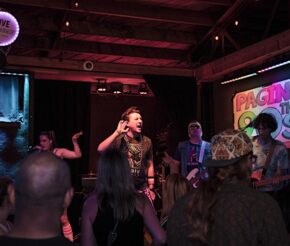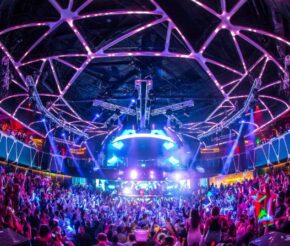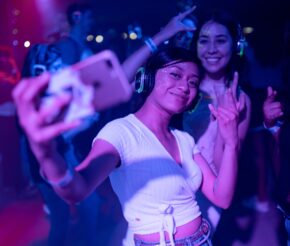- Advertise
-
Subscribe
Online Speed Dating: From the Dance Floor to the App Store

The new era of technology has brought romance to our fingertips.
Online speed dating such as Tinder, Hinge, Bumble, Match.com and countless others have tapped into the core human instinct of searching for a mate, allowing it to happen in our own homes, or even on the go.
Though some of them launched as early as the 90’s, Online dating sites have drastically increased their usership between 2010 and 2020.
Then the pandemic further cemented the place of online speed dating in the modern world, with even the sceptics turning to apps for human connection.
Has the digitalisation of romantic encounters changed the way we meet people for good? Can it really live up to those precious IRL encounters?
Before the internet era, you had to kiss a lot of frogs to find your prince
Before the internet era, attempts to meet a partner looked like carefully selecting the perfect spot in a sweaty club to make eye contact with as many (seemingly) attractive people as possible, only to try to lure one to the bar for an introduction shouted over the heaving bass of the speakers.

Needless to say, you had to kiss a lot of frogs before finding your prince.
Then along came online speed dating, offering users the bare minimum: a mutual understanding that a romantic connection is being sought by both parties.
These apps cut out expenditure on fancy cocktails and well-chosen outfits (most of the time), as well as time involvement.
Because time is money, as they say.
Simply put, they expedited the process, as one 21 year old Tinder user told us:
“IRL, stuff wouldn’t happen so fast. If it’s not in the context of a dating app, I wouldn’t have thought about ‘Oh, do I want to date that person?”
Efficiency aside, online speed dating apps make the whole process less excruciating.

Not only do they allow users to literally block themselves from unwanted or unpleasant attention, they also offer a safe space to pursue connections without being publicly judged.
Fears of rejection are largely set aside in the app world – most will only notify you in the event that the other person actually wants to be your match.
The user we interviewed described her first online encounter with her then-boyfriend as “fun, flirtatious and exciting”.
And we get it. There’s definitely a unique kind of buzz to two people who have already confirmed interest in each other seeing if they hit it off on a conversational level.
But how does this compare to the excitement of meeting a tall, dark and handsome stranger in the street, say?
Not everyone finds online interactions better than in-person ones
Meeting someone for the first time on a night out is nerve wracking.
Even more so if Covid’s had you grow accustomed to hiding behind a screen.
You have less control over the way you portray your physical appearance, and if there’s alcohol involved, little to no control over how your broader persona comes across.

If someone likes you in this state, you’re guaranteed a serotonin rush perhaps even greater than the one you get when someone approves of your carefully curated Tinder profile.
Interestingly, a number of people who reported meeting their long-term partners on the dance floor told us of their uncertainty about whether they would have swiped right on them in the online world.
“I would definitely not have swiped right on [my partner] if I first met him on an app. He wasn’t my type on paper at all. It was only when we started talking that I realised this could change my life”

The same woman speaks of having locked eyes with her future lover simply because “we were both dancing, doing the same thing with the same smile on our faces”.
Nauseatingly cute, right?
This leaves us with the sour and somewhat predictable conclusion that dating apps are a bit of a superficial way to find love.
But maybe that’s the whole point – they profit from their own failures.
How else to keep users engaged if not to keep them searching?





